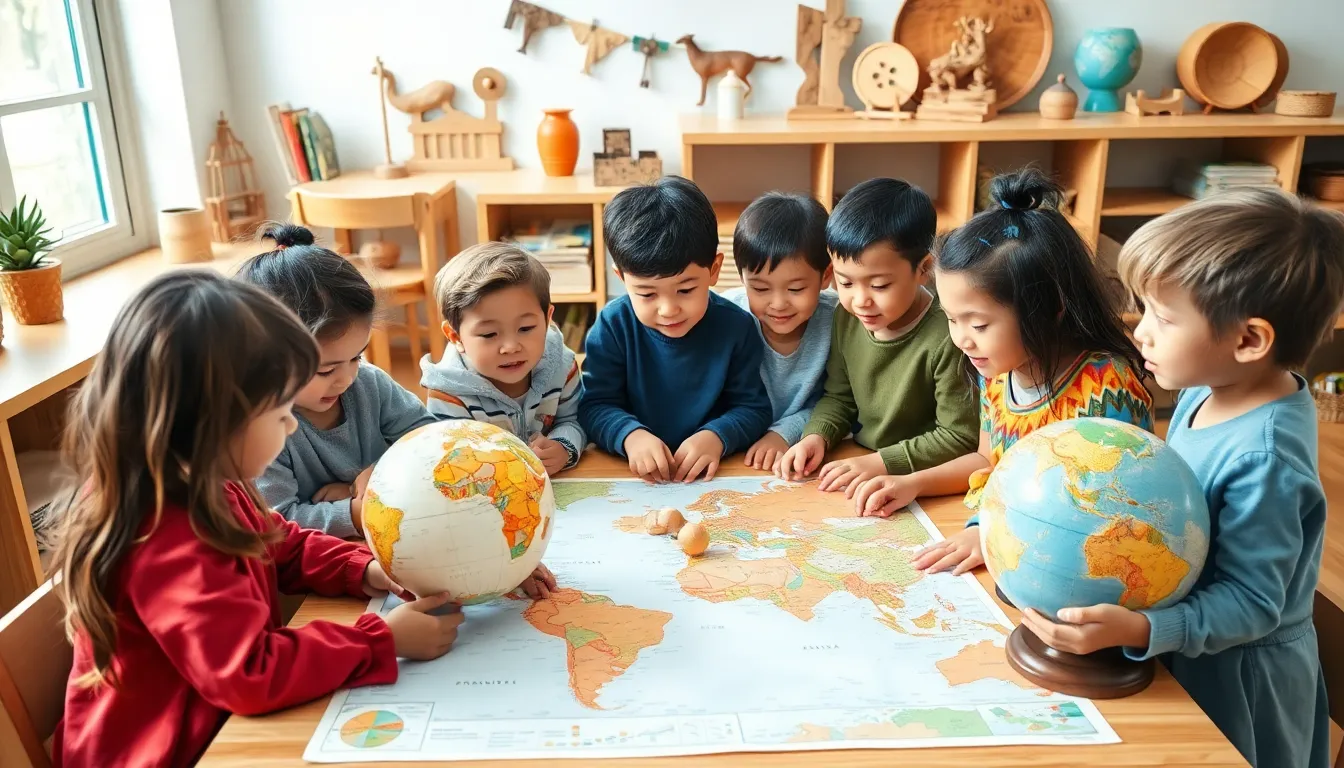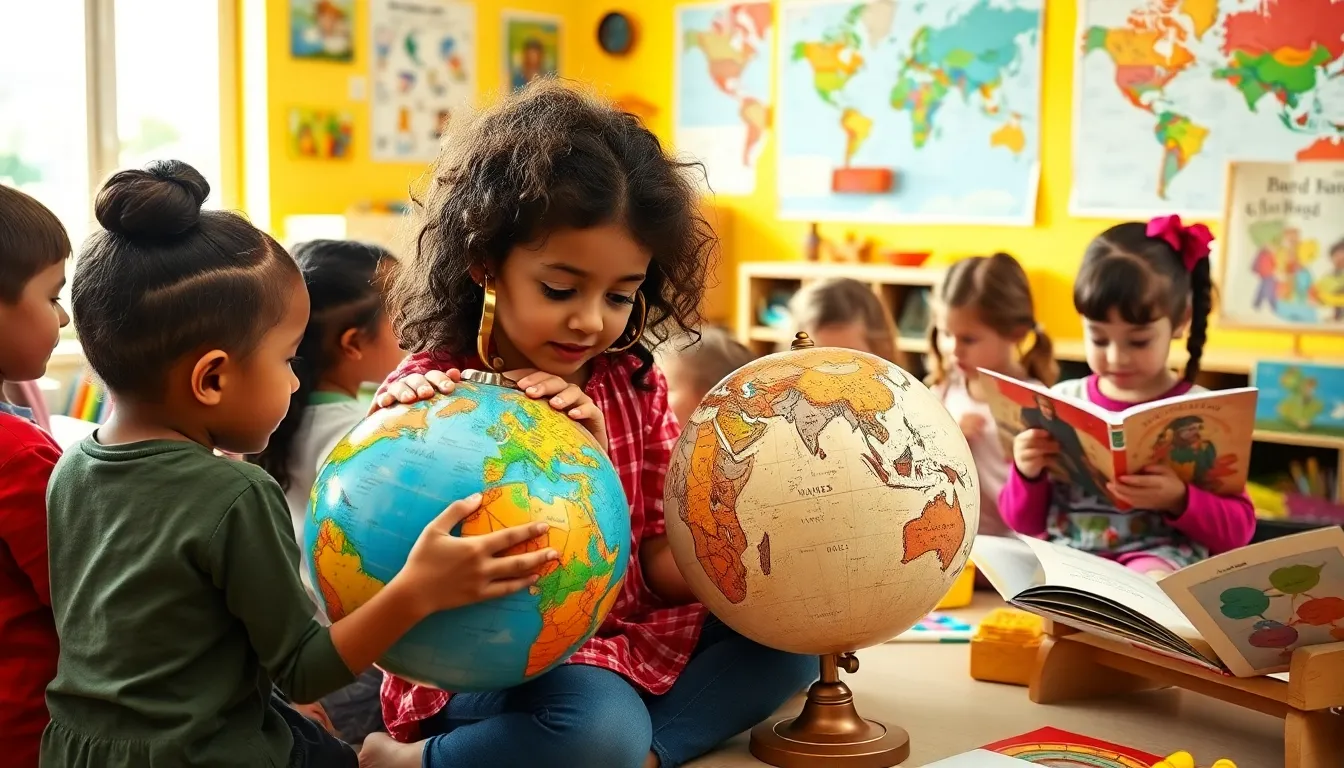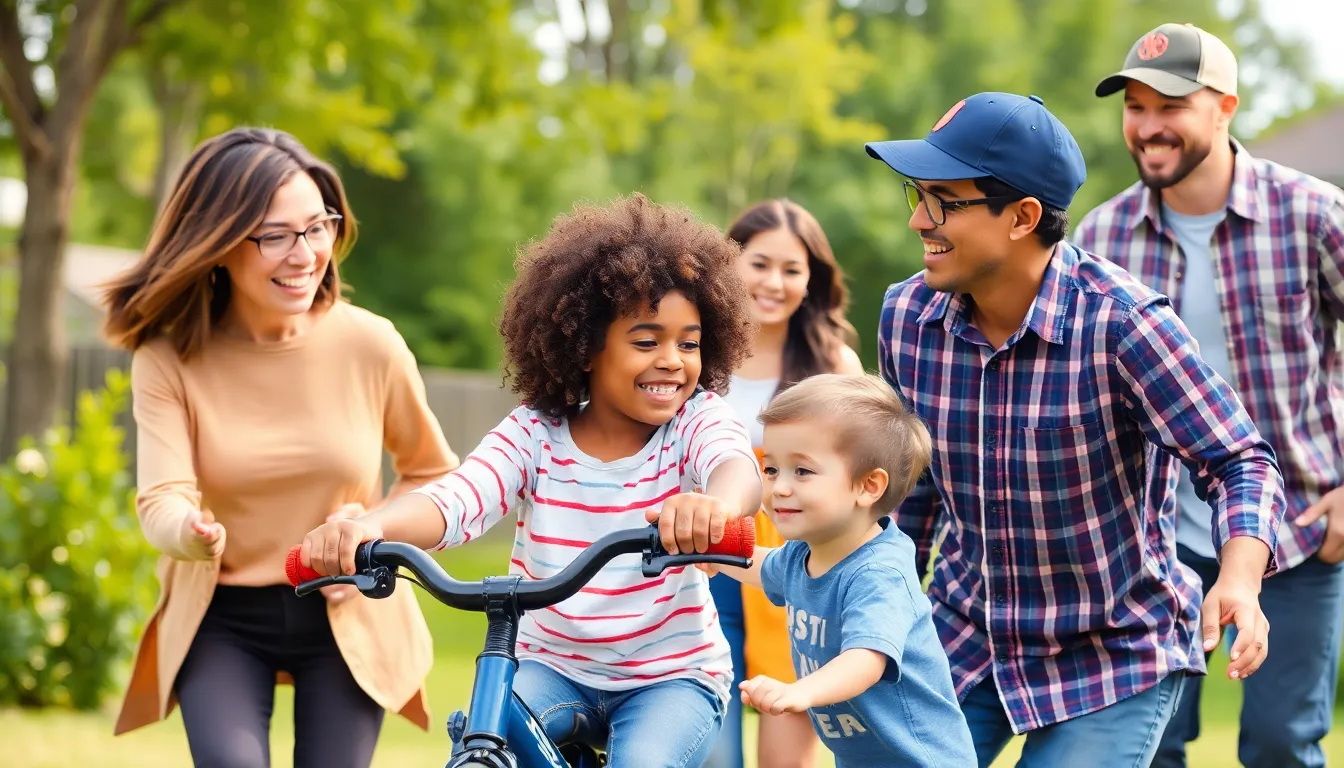Montessori cultural activities play a vital role in nurturing a child’s understanding of the world. These hands-on experiences not only enrich their knowledge but also foster a deep appreciation for diverse cultures, traditions, and environments. By engaging in activities that celebrate geography, history, and the arts, children develop a well-rounded perspective that enhances their social and emotional growth.
In a Montessori setting, cultural activities are designed to be interactive and exploratory, allowing children to learn at their own pace. Whether it’s through music, dance, or exploring different cuisines, these activities ignite curiosity and inspire a lifelong love for learning. As children immerse themselves in various cultures, they build connections and develop empathy, essential skills for thriving in a global society.
Table of Contents
ToggleOverview of Montessori Cultural Activities
Montessori cultural activities focus on hands-on learning experiences that expose children to various cultures and practices. These activities encompass geography, history, and the arts. By providing relevant materials, educators encourage exploration and discovery.
Geography activities often include map work, globe studies, and lessons on different countries and their characteristics. Children engage with tactile materials, reinforcing spatial understanding and global awareness.
History activities allow children to immerse themselves in significant historical events and figures. Storytelling, timelines, and cultural artifacts facilitate a deeper appreciation for the past and its impact on the present.
Arts activities introduce children to artistic expressions from diverse cultures. Craft projects, music, and dance help foster creativity and encourage children to express themselves while gaining insight into the traditions of others.
These cultural activities foster empathy and respect for diversity. Engaging in these experiences cultivates a holistic understanding of the world, essential for thriving in a multicultural society.
Importance of Cultural Activities in Montessori Education

Cultural activities in Montessori education play a vital role in enriching children’s understanding of global perspectives and fostering an appreciation for diversity. These activities create opportunities for hands-on learning experiences that engage children’s curiosity and empathy.
Fostering Global Awareness
Cultural activities foster global awareness by exposing children to different countries, languages, and traditions. Children engage in geography activities like map work and globe studies, which enhance spatial understanding and spark curiosity about the world. Through these interactions, children begin to see connections between themselves and various cultures. Learning about holidays, customs, and environments from around the globe creates a sense of unity and broadens perspectives, essential for thriving in a diverse society.
Encouraging Respect for Diversity
Cultural activities encourage respect for diversity by introducing children to various cultural practices and values. History activities incorporate storytelling and cultural artifacts, immersing children in the experiences of different communities. As children learn about traditions, they develop empathy and an appreciation for differences. Arts activities, including music, dance, and visual arts from various cultures, cultivate creativity while promoting understanding and acceptance. This approach nurtures well-rounded individuals who value inclusivity and harmony within a multicultural environment.
Types of Montessori Cultural Activities
Montessori cultural activities encompass various components that support children’s understanding of the world and its diverse cultures. These activities engage children actively, promoting exploration and appreciation of different traditions.
Art and Music
Art and music activities introduce children to various cultural expressions, enhancing their creativity and self-confidence. Children might engage in creating art inspired by different cultures, using techniques like painting, sculpting, and crafting. They explore instruments and music styles from around the world, allowing them to experience the rhythms and sounds that reflect different cultural heritages. This exposure nurtures their artistic abilities while fostering an appreciation for the diversity of artistic practices.
Language and Literature
Language and literature activities enrich children’s understanding of different languages and storytelling traditions. Children learn basic phrases in various languages, enhancing their communication skills and global awareness. They explore folktales and stories from diverse cultures, which help them build empathy and broaden their perspectives. These activities allow children to appreciate the intricate relationship between language, culture, and identity.
Geography and History
Geography and history activities immerse children in the study of the world, its countries, and significant historical events. Children engage in map work, helping them understand spatial relationships and global communities. By exploring historical figures and events through hands-on experiences, such as cultural artifacts and storytelling, children develop a deeper appreciation for the complexities of the past. These activities also encourage discussions about cultural differences and shared human experiences, promoting global awareness and respect for diversity.
Implementing Montessori Cultural Activities at Home
Implementing Montessori cultural activities at home enhances children’s understanding of diverse cultures and supports hands-on learning experiences. This approach nurtures curiosity and appreciation for global perspectives.
Creating a Cultural Environment
Creating a cultural environment at home involves integrating elements that reflect diverse traditions and practices.
- Display cultural artifacts from various regions, including masks, textiles, and pottery.
- Use maps and globes to encourage exploration of different countries and their cultures.
- Incorporate diverse literature featuring stories and folklore from around the world, fostering an appreciation for varied storytelling traditions.
- Set up art corners with supplies for creating cultural crafts, promoting creativity and self-expression.
By surrounding children with cultural materials, families provide constant opportunities to learn about and celebrate diversity.
Engaging Children in Cultural Experiences
Engaging children in cultural experiences offers practical opportunities for discovery and learning.
- Organize themed cooking sessions featuring recipes from different cultures.
- Facilitate music and dance activities by exploring traditional songs and movements from around the world.
- Host cultural celebrations for various holidays, introducing traditions and customs from different communities.
- Plan field trips to cultural museums or local festivals, offering real-life contexts for learning.
These activities allow children to actively participate in cultural experiences, fostering empathy and understanding in a global society.
Montessori cultural activities play a crucial role in shaping children’s understanding of the world. These engaging experiences not only enhance knowledge but also nurture empathy and creativity. By participating in hands-on activities related to geography, history, and the arts, children develop a deeper appreciation for diverse cultures and traditions.
Implementing these activities at home further enriches children’s learning experiences. Whether through themed cooking, music, or art, families can create an environment that celebrates diversity. Ultimately, embracing Montessori cultural activities equips children with the skills and perspectives needed to thrive in an interconnected world.




